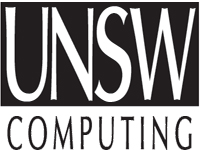|
||||||||||||||||||||||||||||||||||||||||||||
| Introduction to Modal Logic - COMP4412 | ||||||||||||||||||||||||||||||||||||||||||||

Description This course aims to introduce fourth year and beginning graduate students to modal logic. Modal logic is used widely in computer science to model a variety of systems including databases, communication protocols, software, multi-agency and knowledge systems. This course will address the basic axioms, techniques, model theory of modal logic and some representative applications. This course will be assessed on the basis of student presentations and assignments.
Syllabus: Standard modal axioms such as K, T, 4 and 5. Kripke's possible world semantics. Soundness and completeness. The canonical model theorem. Logics of belief and knowledge. Logics of time and computation. If time permits, filtrations and the finite model property. |
||||||||||||||||||||||||||||||||||||||||||||


